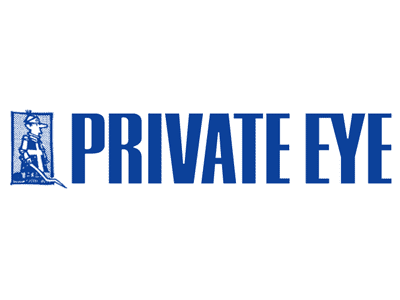Carer’s Allowance is the main benefit for carers. You might be able to get it if your child is on the care component of Disability Living Allowance at the middle or highest rate or if they get the daily living component of Personal Independence Payment.
It is not means tested so it does not matter what savings you have, and most forms of income are ignored. However if you work you can only get Carer’s Allowance if your earnings after deductions are no more than £123 per week (2019).
Who qualifies for Carer’s Allowance?
You qualify for this benefit if you provide at least 35 hours of care per week to someone who gets one of:
- The care component of Disability Living Allowance (DLA) at the middle or highest rate.
- The daily living component of Personal Independence Payment at either rate.
- Attendance allowance at any rate. This is a benefit for older people.
You also must meet certain tests linked to your immigration status and the length of time you have spent in the UK.
If you share the care of a disabled child with someone else and you each provide at least 35 hours a week care, only one of you can get Carer’s Allowance for that child.
There are additional tests if you work or study.
Can I work and still get Carer’s Allowance?
If you work you must not earn more than the ‘earnings limit’ of £123 per week (2019).
In calculating your earnings, you can make certain deductions from your gross wages. This not only includes any tax and national insurance you pay but also:
- 50% of any contributions you make into a works or personal pension scheme
- Any alternative care costs you have that enables you to work. This covers not only any costs you have for your disabled child (regardless of their age) but also any childcare costs for other children you have aged under 16. Care costs count so long as you are not paying a close relative – there is no requirement that you pay a registered childcare provider. There is a cap on the maximum you can deduct for alternative care costs, this cap is half of your earnings.
- Any expenses you have that are wholly, exclusively and necessarily incurred in carrying out your work e.g. if you have to buy tools or specialist clothing or you have to travel between work sites (travel between work and home does not count).
If your earnings vary they should be averaged out, although the period used is at the discretion of the DWP. If you are self-employed your average earnings are normally based on your last year’s accounts unless there has been a significant change in your business.
Only your earnings are counted. If you have a partner who works their earnings are ignored.
If you get Universal Credit, and your earnings are too high to get Carer’s Allowance, you should still qualify for an extra Universal Credit payment called the carer addition.
Can I study and still get Carer’s Allowance?
If you study, you cannot get Carer’s Allowance if you are in full time education. Generally you are treated as in full-time education and unable to get Carer’s Allowance if your course is described as full time by the course provider. However there can be exceptions to this – for example if you have been granted exemptions from parts of the course.
Even if a course is described as part-time, you still cannot get Carer’s Allowance if it involves 21 hours or more ‘supervised study’ each week. Supervised study does not just mean the hours of contact you have with teachers or tutors at your school, college or university. Work that you do elsewhere e.g. at home is also treated as ‘supervised’ if it is study that is required to meet the reasonable expectations of the course.
How much Carer’s Allowance will I get?
Carer’s Allowance is £66.15 a week. (2019)
You can only get one award of Carer’s Allowance even if you are looking after more than one person.
Claiming Carer’s Allowance can also help protect your right to a state retirement pension. This is because you will receive class 1 National Insurance credits for every week you get Carer’s Allowance.
Carer’s allowance claimants in Scotland receive supplementary payments from the Scottish Government. This is done by a lump sum payment twice a year.
How does Carer’s Allowance affect other benefits?
Means-tested benefits
If you are claiming a means-tested benefit such as Income Support, Housing Benefit or Universal Credit, any Carer’s Allowance you get is taken into account as income when calculating these other means-tested benefits. However to ensure you are better off an extra amount of £36.85 per week known as the ‘carer premium’ (carer addition in Universal Credit) is added to that means tested benefit.
Non-means-tested benefits
You cannot be paid Carer’s Allowance at the same time as certain other non-means-tested benefits like contributory Employment and Support Allowance or State Pension.
However it is still worthwhile making a claim for Carer’s Allowance in these circumstances. By making a claim you will establish an “underlying entitlement” to Carer’s Allowance. This means you will be counted as a carer for means-tested benefits, and these will be calculated more generously with a carer premium being added into your payments.
Tax credits
Carer’s Allowance is treated as income for tax credits purposes. Despite this you are usually left better off after making a claim. This is because the amount of Carer’s Allowance paid is greater than any drop in tax credits.
In order to avoid an overpayment it is important that you let the Tax Credit Office know that you are getting Carer’s Allowance.
Will a claim for Carer’s Allowance effect the benefits of the person I’m looking after?
So long as you claim as the carer of a dependent child, a claim for carer’s allowance will not have any impact on the benefits that they receive.
Claiming carer’s allowance for a disabled adult is also not normally a problem. However if they are a disabled adult who receives a payment known as the ‘severe disability premium’ as part of a means tested benefit claim, they will be left worse off if you get carer’s allowance for them.
How do I claim Carer’s Allowance?
You can apply on-line using the government’s Carer’s Allowance webpage. In Northern Ireland you claim online at the NI Direct website.
Alternatively if you would prefer to use a paper claim form you can call the Carer’s Allowance Unit on 0800 731 0297. To make a claim in Northern Ireland call the Benefit Enquiry Line on 0800 587 0912.
Carer’s Allowance should be backdated to the start of the DLA/PIP award so long as you claim within 3 months of receiving the decision awarding your child DLA or PIP.
Carer’s Allowance and the National Living Wage
Although the Carer’s Allowance earnings limit will increase from £120 to £123 a week from April 2019, the National Living Wage will also rise to £8.21 per hour. This means parents working 15 hours or more on the National Living Wage will find that their wages are over the Carer’s Allowance earnings limit – unless they have deductions that can be made from their earnings.
Last Updated on




